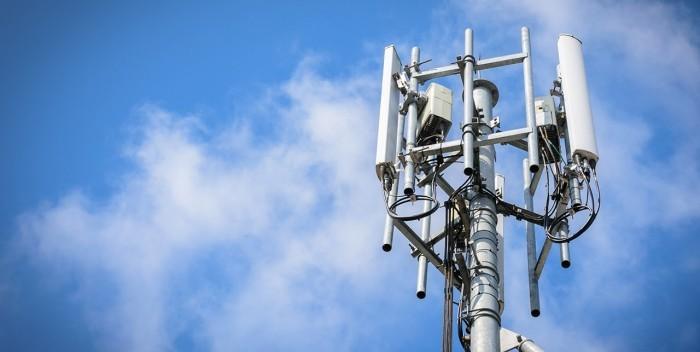In a tug-of-war between the FAA and airlines with the FCC, Verizon and AT&T over their planned mid-band 5G services, the mobile operators rejected a two-week delay from the FAA. Earlier this year, an FCC auction sold the rights to use the so-called "C-band" frequency to two operators for nearly $70 billion.

Verizon and AT&T are eager to roll out the technology, so that in addition to providing ultra-fast 5G connectivity using high-band millimeter wave technology in specific regions and much slower 5G over low-band frequencies, the new spectrum will provide moderate signal coverage and performance levels in a wider range of regions, especially as T-Mobile currently uses mid-band spectrum that is not in the C-band, and the demand for this technology is even more urgent.
On Friday, U.S. Transportation Secretary Pete Buttigieg and FAA Administrator Steve Dickson sent a letter Friday to AT&T CEO John Stankey and Verizon CEO Hans Vestberg asking them to postpone plans to begin commercial deployments on Jan. 5. Air travel regulators say they will use this time to identify priority airports, notify flights and arrange alternative compliance methods.
Bloomberg and Reuters reported that in the two CEOs' reply today, the two companies believed that previous requests to give way to a 30-day delay and reduce the power of their signals had little effect. They will start using C-band spectrum as scheduled to expand their 5G services, but promise to avoid deployment around certain airports for 6 months, citing France as an example to articulate their position. And showed that this commitment relies on "the FAA and the aviation industry committing to do the same thing without escalating their grievances elsewhere, even though their grievances are unfounded."
In the letter, they stated:
"Now, on New Year's Eve evening, just five days before the C-band spectrum is about to be deployed, we have received your letter asking us to take more voluntary measures — to the detriment of our millions of consumers, businesses and government customers — to assist the aviation industry and the FAA again after failing to resolve the issue during that costly 30-day delay period, so that we never thought it was a good start."
"At its core, the framework you have proposed requires us to agree to hand over oversight of billions of dollars invested by our companies in 50 unnamed metropolitan areas representing a large portion of the U.S. population to the FAA for months or years of uncertain timing. To make matters worse, the proposal is aimed at only two companies, without regard to the terms of auctions and licensing, with exceptions for all other companies and industries within the FCC's authority. "
"...... In a spirit of cooperation and goodwill, we will again voluntarily change our use of C-band spectrum over the same six-month period (unless we and the FAA determine that these voluntary restrictions should be eased earlier). Specifically, within 6 months, until July 5, 2022, we will adopt the same C-band radio exclusion zone that France has already used, with slight adjustments to reflect minor differences in the technology of C-band deployments between the two countries. This approach — one of the most conservative in the world — will include a wide range of exclusion zones around the runways of some airports. The effect is to further reduce C-band signal levels by at least 10 times on the runway or in the last mile of the final entry and the first mile after takeoff. "
Federal Communications Commission (FCC) Commissioner Mike O'Reilly said of the letter on Twitter: "We can have secure wireless and safe flights. Sane people should accept the reality that the U.S. wireless industry does not have more C-band restrictions than France. "
According to the FAA, the controversial thing is that the aircraft's guided landing system "may be limited because of concerns that 5G signals could interfere with the accuracy of the aircraft's radio altimeters, with no other mitigation." "However, C-band 5G and these radio altimeters don't actually work in the same band, but the two bands are close enough that the FAA has this concern."
Reuters noted that Airlines for America, a trade group representing companies such as American Airlines, JetBlue Airways, Delta Air Lines, FedEx and UPS, threatened to address the issue in court on Monday if the FCC did not take action on the promotion of 5G.
So far, the FAA's response to the letter has been: "We are reviewing the latest letter from wireless companies on how to mitigate interference from 5G C-band transmissions." U.S. aviation safety standards will guide our next steps."